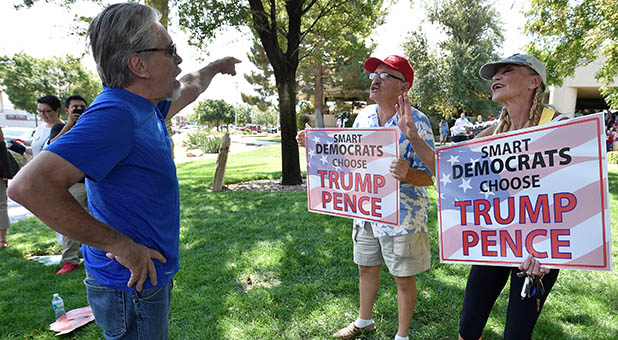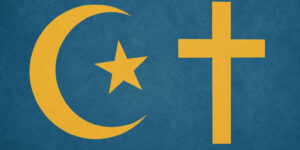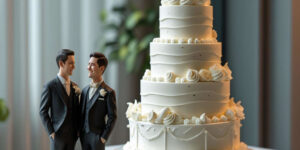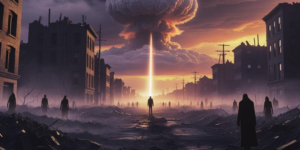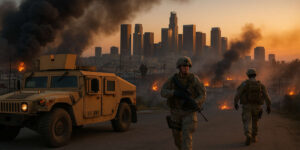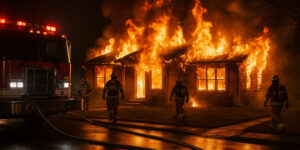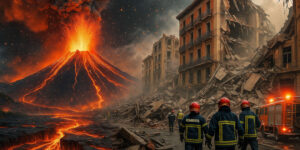Christians Don’t Need ‘Trigger Warnings’ Either
In the early 1930s a student organization at the University of Chicago invited William Z. Foster, the Communist Party’s candidate for president, to give a lecture on campus. Not surprisingly, the event sparked outrage and criticism, both at the school and around the country. In response the school’s president, Robert M. Hutchins said, “our students … should have freedom to discuss any problem that presents itself” and said the “cure” for ideas we oppose “lies through open discussion rather than through inhibition.”
On a later occasion, Hutchins added that, “free inquiry is indispensable to the good life, that universities exist for the sake of such inquiry, [and] that without it they cease to be universities.”
A lot has changed in the past 80 years. Today, for example, a candidate for the Republican Party is more likely to be banned from speaking on a college campus than would be a candidate for the Communist Party. But one thing has remained the same: Many students (and some professors) are uncomfortable with the idea that colleges and universities should be bastions of free inquiry.
Over the past five years we’ve heard a lot about “trigger warnings” and “safe spaces.” Triggers warnings are written warnings to alert students in advance that material assigned in a course might be upsetting or offensive. And safe spaces are, as Judith Shulevitz says, the “live-action version” of trigger warnings.
A prime example was at Brown University. When a speaker came to present research and facts about “the role of culture in sexual assault,” students at Brown set up a “safe space” equipped with “cookies, coloring books, bubbles, Play-Doh, calming music, pillows, blankets and a video of frolicking puppies, as well as students and staff members trained to deal with trauma.” The room wasn’t for people who had been traumatized by an actual assault but to provide comfort to those who were “traumatized” by those who were offended by the content of the speech. As one student said, she had to return to the “safe space” because, “I was feeling bombarded by a lot of viewpoints that really go against my dearly and closely held beliefs.”
Unlike many other elite schools, the University of Chicago has chosen not to protect students from ideas they may find offensive. In 2014 UC appointed a Committee on Freedom of Expression to help the school develop policies for promoting free and open discourse. One result has been the letter that the school recently sent out to freshman students:
Welcome and congratulations on your acceptance to the college at the University of Chicago. Earning a place in our community of scholars is no small achievement and we are delighted that you selected Chicago to continue your intellectual journey.
Once here you will discover that one of the University of Chicago’s defining characteristics is our commitment to freedom of inquiry and expression. … Members of our community are encouraged to speak, write, listen, challenge, and learn, without fear of censorship. Civility and mutual respect are vital to all of us, and freedom of expression does not mean the freedom to harass or threaten others. You will find that we expect members of our community to be engaged in rigorous debate, discussion, and even disagreement. At times this may challenge you and even cause discomfort.
Our commitment to academic freedom means that we do not support so called ‘trigger warnings,’ we do not cancel invited speakers because their topics might prove controversial, and we do not condone the creation of intellectual ‘safe spaces’ where individuals can retreat from ideas and perspectives at odds with their own.
While many conservatives will cheer the school’s bold stance, we shouldn’t forget that too many Christian students want to be coddled also. A survey by the National Coalition Against Censorship found that many professors report offering warnings for the sake of conservative or religious students:
Many professors report offering warnings for the sake of conservative or religious students. “I used trigger warnings to warn about foul or sexual language, sexual content, or violence in order to allow our very conservative students to feel more in control of the material,” wrote one instructor.
In fact, many respondents commented about warnings to address religious sensitivities. A respondent who teaches and holds an administrative post reports receiving “many complaints, some with parental involvement. These have mostly been religious objections.” . . . Another explained that “the trigger warnings that I place in my general education Humanities course syllabus have to do with religious and moral content that might be offensive to persons who are zealous about their particular faith.” Yet another observed that “the Bible … is a topic that can offend both fundamentalists and those who are not comfortable with religion.” There was even a “Rastafarian student [who] was very offended at my comparison of Akhenaten’s Great Hymn to Psalm 104.”
Rather than joining the left in trying to ban certain ideas from campuses, conservative Christians should teach their children how to navigate a world that often disagrees with our beliefs and values. Matthew Woessner, a political science professor at Penn State Harrisburg, has offered some tips on how we might turn the challenges conservative students face into an “opportunity for growth.”
Joe Carter is a Senior Editor at the Acton Institute. Joe also serves as an editor at the The Gospel Coalition, a communications specialist for the Ethics and Religious Liberty Commission of the Southern Baptist Convention, and as an adjunct professor of journalism at Patrick Henry College. He is the editor of the NIV Lifehacks Bible and co-author of How to Argue like Jesus: Learning Persuasion from History’s Greatest Communicator (Crossway).



